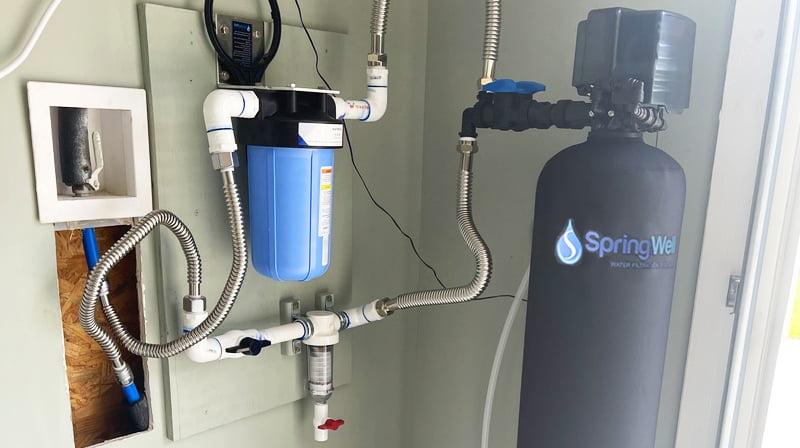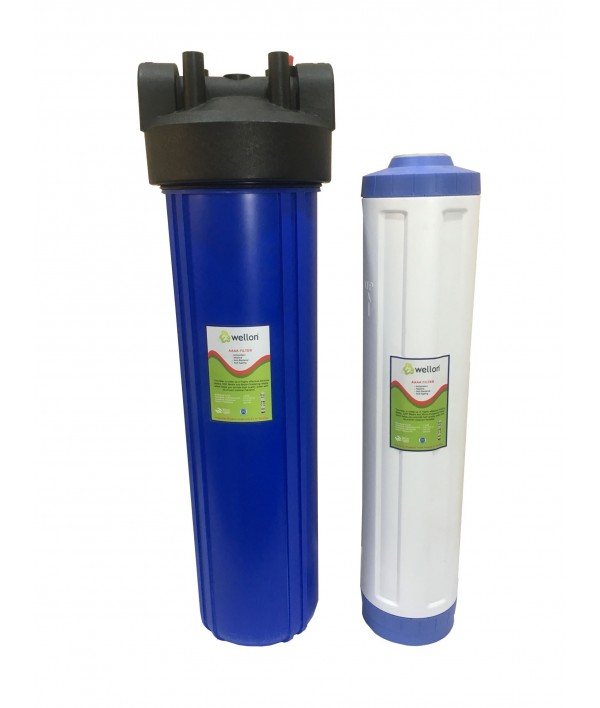How do Whole Home Water Filters Work?
How do Whole Home Water Filters Work?
Blog Article
Presented here in the next paragraph you can discover lots of outstanding details when it comes to What are the Benefits of Using a Whole House Water.

Entire home water filters are the best option for individuals that have an interest in having a home that provides tidy, drinkable water. Along with providing quality alcohol consumption water throughout your home, a whole home water filter additionally gives advantages such as eliminating pollutants that trigger spotting in water that is made use of to clean meals. Unfiltered water can also cause trouble such as wearing away pipes as well as appliances, wrecking garments that is washed and stain sinks or showers. Although entire home water filters are typically used in household residences, they can likewise be an effective alternative for apartment or condos or offices.
At first, it might seem that whole residence water filters would certainly be incredibly pricey when contrasted to other filter alternatives, however they are actually a really economical option for water purification. The price series of these water filters is big, starting at 2 hundred bucks and setting you back as much as one thousand bucks. The cost of the filters is dependent upon their dimension, material and also lifetime. This might seem like a very high cost, yet when compared with various other filter choices, it is in fact really budget-friendly as a result of the amount of filtering that it supplies.
Whole home water filters purify water in the exact same style that other filters, such as kitchen counter or under sink filters, do. The difference is that it needs just one filter, which is attached to the major water source, rather than needing several water filters to be connected to various devices. Similar to the other filters, entire residence water filters purify faucet water by forcing it with several different phases of filtration. One of the stages is carbon purification. Carbon is an effective technique of filtering system water since it is permeable and also has the capability to eliminate tiny as well as big contaminations. Carbon is important in getting rid of volatile natural carbon substances, which sometimes can trigger serious damages to the liver, kidney or main nervous system. Carbon likewise removes hazardous materials such as pesticides, commercial solvents and also insecticides.
One more essential step of the purification procedure involves a procedure such as ionization or micron purification. This action removes thousands of contaminants found in tap water, as well as changes the water to fantastic sampling, healthy and balanced drinking water. As pointed out previously, the main advantage of entire residence water filters are that they provide filtered water throughout your home with using just one filter.
An additional advantage of whole home water filters is the long lifetime that they supply. A lot of these filters last in between fifty and also one hundred thousand gallons of water. For many, the main downside of entire residence filters is the greater than average cost. Although these filters are extremely economical, they do call for a large investment up front. Whole home water filters can additionally call for a significant amount work to set up.
THE IMPORTANCE OF WATER FILTRATION
Water is such an essential part of our daily lives that many times we don’t stop to consider where it’s being sourced or the quality of it. We assume we’re receiving the best possible output. For many, tap water is deemed undrinkable, which is where filtered water comes into play. The importance of water filtration is that it gives people access to clean water that is free of contaminants, that tastes good, and is a reliable source of hydration. Without it, there’s the risk of becoming ill from contaminated water or the alternative of drinking other beverages that may not be as good for your health as purified water.
There are different types of filtered water but all offer the basics of the water purification process. This involves water that has been strained of harmful chemicals, pesticides, bacteria, and other particles that contaminate the water. Although public water systems have filtration protocols in place, these vary from state to state. It depends on where your water supply is sourced from originally, the way it is treated, and the quality of water pipes. For example, older water filtration systems that use lead pipes may be harmful to the final dispersal of water because of lead leaching from the pipes into the water.
FILTERED WATER SOLUTIONS THAT REMOVE CONTAMINATION AND IMPURITIES
Fortunately, there are several ways people can get filtered water. A water filter has microscopic holes that remove sediment and pollutants from the water. The smaller the holes, the less it allows to pass through and the cleaner the water is. The way each type of water filtration system works is slightly different. The most common options are bottled water, at-home filters, reverse osmosis units, and alkaline water.
BOTTLED WATER
Billions of gallons of bottled water are sold yearly as demand for it continues to increase. Although perceived as an inexpensive, convenient filtered water option, it is more costly in the long run than other filtered water choices. The price of bottled water is nearly 2,000 times the cost of tap water and has vastly increased the amount of plastic waste affecting our environment.
FILTER FAUCET ATTACHMENTS AND PITCHERS
These types of filters are easily obtained and are effective in improving the taste of tap water. They help to reduce lead and solids by using a filter screen to capture small particles. In some cases, these types of filtration solutions use a block of activated carbon that helps to remove unpleasant odors and tastes that might be present in your water.
When using either of these at-home options, it’s important to change the filter on a regularly scheduled basis. Failure to do so causes build up in the filters and the water that passes through may not be as clean as desired. Also, when it comes to the availability of filtered water using pitchers, they constantly need to be refilled and there is a period of waiting time until purified drinking water is available again. This is an inconvenience when using in larger households or in organizations where a large group of people is relying on a consistent source of filtered water.
https://home.drinkflowater.com/blogs/posts/the-importance-of-water-filtration

Do you appreciate reading up on What are the Benefits of Using a Whole House Water? Post feedback down the page. We'd be delighted to listen to your feelings about this content. In hopes that you come back again before long. Sharing is caring. Helping others is fun. Kudos for your time. Visit again soon.
Schedule Services
Report this page